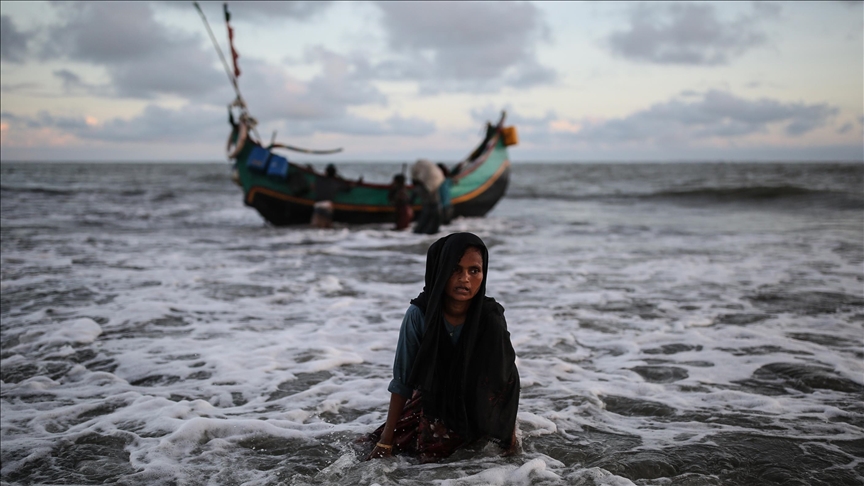UN refugee chief warns Rohingya face 'lives defined by fear'
'The humanitarian response in Bangladesh remains chronically underfunded, including in key areas like food and cooking fuel,' says Filippo Grandi

HAMILTON, Canada
UN High Commissioner for Refugees Filippo Grandi on Tuesday urged the international community to step up support for Rohingya Muslims and other minorities from Myanmar, warning that funding shortfalls are putting lives at risk.
"As in other crises and given the way conflicts are conducted by parties across the country, too often disregarding the rules of war, civilians are killed, wounded, deprived of the basics; 5.1 million are displaced, of whom 1.6 million have taken refuge in neighboring countries," Grandi said told the UN General Assembly High-Level Conference on Rohingya Muslims and Other Minorities.
Emphasizing the "unique" challenges faced by the Rohingya, Grandi said: "Their plight is somehow unique, not only do they continue to be discriminated, deprived of rights and abused -- a situation they have endured for decades -- but they are also caught in one of several ethnic conflicts affecting the country, except it is not their own: the one pitching the Arakan Army in Rakhine State against the de facto authorities."
He noted that the Rohingya "live with the threat of arbitrary arrest and detention, with restricted access to health care and education. They cannot move freely. They are subjected to forced labor. Forced recruitment. Their lives are defined by fear."
Grandi expressed gratitude to host countries, including Malaysia, Indonesia and Thailand, while highlighting Bangladesh's role in sheltering nearly 1.2 million refugees.
But he warned that "the humanitarian response in Bangladesh remains chronically underfunded, including in key areas like food and cooking fuel. The prospects for funding next year are grim."
"We must do more, please. I call on all of you. Funding will save lives, there is no question about that," he stressed, adding that "the most important, however, is not to forget that this crisis originates in Myanmar. And that is where the solution lies."
Hundreds of thousands of Rohingya have fled Myanmar since 2017 due to violent crackdowns by the military and armed groups. Most have sought refuge in Bangladesh, with some reaching Indonesia after dangerous sea journeys.








